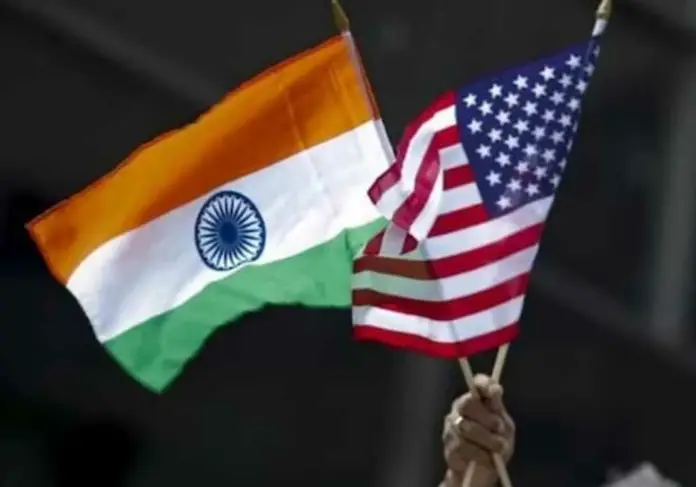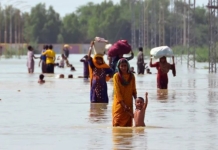The alliance between the United States and India stands as one of the most pivotal and influential relationships in the 21st century. The United States lends its support to India’s ascent as a prominent global force and a crucial ally in fostering a peaceful, stable, and prosperous Indo-Pacific region. Indian authorities and analysts have emphasized their stance on not playing second fiddle to the United States despite their close cooperation, underscoring India’s traditional aversion to aligning with any camp in global power dynamics. India’s historical policy of neutrality allowed it to forge military ties with the Soviet Union in the past, eventually leading to a strategic partnership with the US, facilitating access to nuclear materials for its civilian nuclear program. Today, India, as an emerging power, aims to carve its own geopolitical sphere of influence rather than confining itself to a regional balancing act. Despite its assertive neutrality, India’s reluctance to always align with U.S. interests, such as in the case of the Ukrainian conflict, hasn’t deterred its popularity in America, with U.S. policymakers maintaining a keen interest in India.
In the realm of defence and security, the collaboration between the United States and India extends to robust defence industrial cooperation. This cooperation explores avenues for joint development and production of significant military capabilities beneficial to both nations. Notably, the United States recently granted a groundbreaking manufacturing license for the co-production of GE F414 engines in India, marking a significant stride in defence collaboration. Furthermore, initiatives such as educational series aimed at empowering startups and young innovators underscore the commitment to bolstering defence industries in both countries. Additionally, cooperation thrives through bilateral channels like the U.S.-India Counterterrorism Joint Working Group and the Défense Policy Group.
In the pursuit of clean energy, both nations share a common vision articulated in ambitious 2030 targets for climate action and clean energy deployment. Collaboration extends to increasing minerals security cooperation to support clean energy goals, exemplified by initiatives like the Minerals Security Partnership. The establishment of platforms like the India-United States New and Emerging Renewable Energy Technologies Action Platform (RE-TAP) facilitates collaborative efforts in piloting and testing renewable energy technologies. Moreover, joint initiatives such as the Strategic Clean Energy Partnership and the Climate Action and Finance Mobilization Dialogue amplify cooperation in clean energy endeavours.
The space domain serves as another avenue for bilateral cooperation, exemplified by India’s participation in the Artemis Accords and joint priorities in human spaceflight, commercial collaboration, and space exploration. Plans include advanced training for Indian astronauts at NASA’s Johnson Space Centre in Houston, with a vision of joint efforts to the International Space Station. Furthermore, India’s investment in constructing a Laser Interferometer Gravitational-Wave Observatory aligns with collaborative efforts to explore the physical origins of the universe. Bilateral mechanisms like the Civil Space Joint Working Group and the Quad Space Working Group further enhance collaboration in civil and commercial space activities.
Multilateral cooperation forms a cornerstone of the U.S.-India partnership, with active engagement across various international organizations and forums. Both nations collaborate closely in fora such as the United Nations, G20, and the Quad, aiming to promote a free and open Indo-Pacific. The partnership extends to initiatives like the Indo-Pacific Economic Framework for Prosperity, fostering economic connectivity and resilience. Additionally, collaboration extends to people-to-people ties, with over 200,000 Indian nationals studying in U.S. universities and a vibrant Indian diaspora community fostering collaboration, innovation, and job creation in both nations.
The underlying question revolves around the essence of this relationship. At its core, the India-US partnership isn’t solely driven by economic interests or countering common adversaries like China. It finds its roots in what the US State Department terms as “shared values,” encompassing a commitment to democracy and the international rules-based order, despite occasional contradictions in practice. References to both countries as the “oldest and largest democracies” have become commonplace, reflecting this ideological tie. Analysts highlight the alignment between India’s democratic principles, cultural openness, and free market ideals with American values of freedom, liberty, and human rights. This alignment forms one of the fundamental pillars of the India-US relationship alongside defence, economics, global cooperation, and people-to-people ties. India’s image as a democratic stronghold amid authoritarian neighbours enhances its soft power in the West, strengthening ties with the U.S. (Pakistan is perceived as belonging to the authoritarian category, which poses disadvantages for its international standing.) This normative convergence is increasingly pivotal for US-India ties, especially in the context of the global shift towards democratic-authoritarian competition.
Contrary to concerns about a democratic recession, surveys indicate strong American support for democracy both domestically and internationally. This inclination towards democratic governance influences US foreign policy, favouring nations that share these values for long-term, sustainable partnerships. India’s favourable perception in the US underscores the resonance of its democratic identity. Gallup surveys show a high favourability rating, indicating its significance in American strategic considerations.
Amidst these dynamics, Pakistan needs to reassess its strategic alliances, understanding the importance of maintaining ties with the West. Building on its democratic framework could enhance Pakistan’s standing, fostering enduring partnerships beyond transactional interests. The recent Democracy Index highlights the importance of democratic credentials in shaping international relationships. Weak democratic institutions risk isolating Pakistan from the democratic world, hindering prospects for substantive cooperation with the West. As Pakistan endeavours to strengthen ties with the West, it must prioritize bolstering its democratic framework to align with shared values, thereby securing its position in the evolving global landscape.
The writer is a PhD scholar in English Literature, a Lawyer, and an International Relations analyst.







